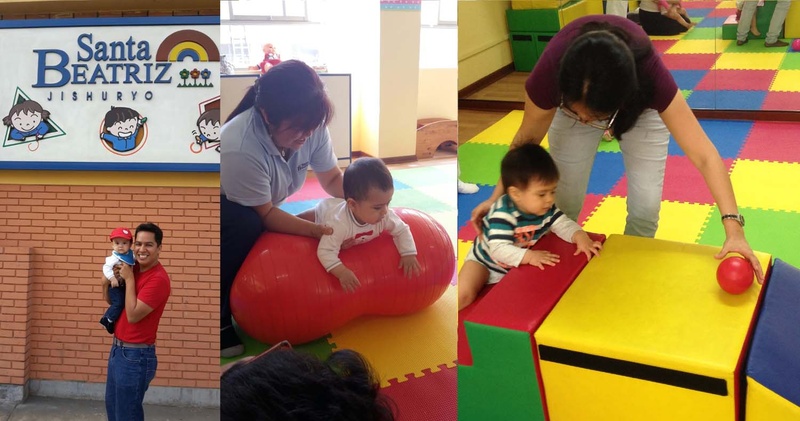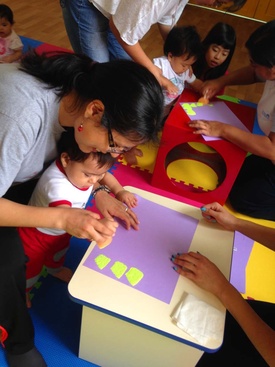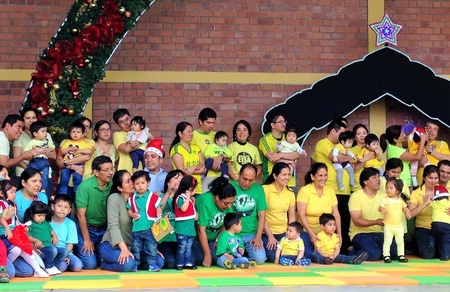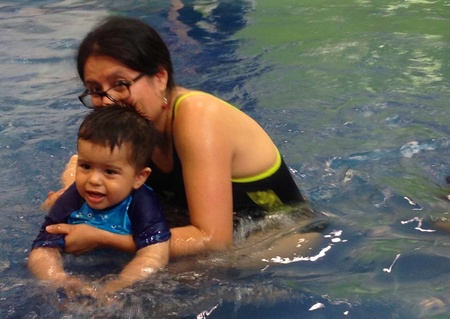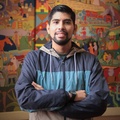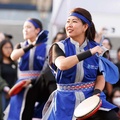Parents go through three initial moments of uncertainty: when we still do not know the results of the pregnancy test, when in the mother's womb we discover that we do not know what to do when the baby arrives and when, once in our arms, we wonder how to be good parents.
For the third, there are parent-child schools that are a continuation of the psychoprophylaxis classes that many receive during pregnancy. Only here the ones who learn are the parents with their children. The CEINE Santa Beatriz Jishuryo Early Childhood Education Center, founded in Lima in 1928, has been one of the pioneers in this type of teaching with the early stimulation program “Growing up with mommy.”
At the initiative of Sara de Yumi, administrator of Jishuryo, Mary Yamamoto and Rosy de Loayza, and with the support of Elizabeth Sernaqué, this comprehensive program for children from six months of age seeks to develop their physical, intellectual, emotional and social potential and abilities. “It's important that people pay attention to these programs,” Jishuryo director Katia Shiroma tells me. “Parents worry less and less about raising their children.”
Lessons for dads
Javier Ignacio is one and a half years old and this is the second time he has entered a pool. Nachito, as we call him at home, is my son. He attends with mom and dad, every Saturday, since he was six months old, the “Growing up as a Family” program, as it was called ten years ago, when psychologists Miriam Kohatsu and Nancy Blas were in charge of hosting it.
“At first we had no students, so we started with just one girl who was the daughter of a teacher,” says Miriam, remembering those who started the program, such as Diana Inami and Susy Nakatahara; Cindy Uchima, Yuki Inami, Carla Vélez, Hiromi Kiuchi, Nadia Gómez and Cecilia Takamure, who directed the program during the transition period, later joined. Currently there are ten teachers who make up the team.
“Dad and mother form the child's first emotional bond. They are the ones who are going to give you security,” explains Miriam. “Sometimes only one of the parents, grandparents, uncles or nannies comes, but the family has to get involved. The idea is to give it a special dedication. Sometimes we don't know how important the emotional moment is, the physical contact with the child. These are things that are learned, although mothers know a lot intuitively.”
From baby to child
When Nachito started in his early stimulation classes, he learned to crawl using the criss-cross pattern, to go up and down hills, to learn about textures, sounds and smells, to follow commands (go, stop, clap, be silent) and to dance to songs that They helped him recognize left and right. “That is important for writing, so that they do not write the letter b or the letter e backwards,” explains Nancy Blas.
According to the psychologist who has worked for nearly 30 years at the Pérez Aranibar Child Care Center with high-risk children (premature, malnourished or with different abilities), early stimulation is that which is given on time, and not precociously. “The child's brain grows rapidly until the age of two. From now on he is going to perfect his skills,” he comments.
Gaining security and promoting neuromotor development with a dosage of stimuli is part of the program in which they learn hygiene habits, how to eat (first breastfed or with a bottle, then around the table with their parents and finally alone) and socialize. For the latter, many values of the Nikkei community are used, such as solidarity, gratitude and humility.
grow and learn
Nachito now kicks in the water, walks more confidently (planting the entire sole of his foot) and puts away his class material at the end of each activity. Their photos leaving the imprint of their hands and feet are close memories but they show how quickly children grow at that stage. Soon they are saying their first words and imitating what their parents do.
The Parenting Styles workshop helps manage the parent-child relationship, seeking to adopt healthy parenting styles, with mutual respect and trust. This is how you achieve an independent child, who can later go to the nest without problems; responsible (with good habits for relating to other children), who learns to look for solutions, express their feelings and enjoy their achievements.
In December, Nachito attended the closing of the year for which artistic numbers related to Christmas were prepared. It was his first time on stage, sharing with the other children in his class. Parents remember those moments because we also learn to mature: one day he can't walk if you don't take him by the hand and the next he wants you to let him go and walk alone. “When you have to leave them alone, first the children cry and then the parents,” Miriam jokes.
Baby pool
This summer's water classes are not intended to make one-year-olds great swimmers. The aim is for them to behave safely in the water, which is why they enter the pool in the company of their parents. “Water plays a vital role in our lives, not only because we need it to live but we also come from it because a large percentage of the amniotic fluid is water,” Professor Diana Inami wrote for the newspaper Perú Shimpo.
In his column, he highlights this learning technique because it helps relaxation, because it is a playful and exploratory means for children. "The contact of water with the entire body is the prelude to what will be your body consciousness, since when you feel the water between your legs, feet, fingers, you experience the body-movement relationship intensely."
The younger the child, the more results he will show. Miriam Kohatsu clarifies that the early stimulation program does not aim for all children to do the same. “Everyone goes at their own pace. After classes, the teachers meet and an evaluation is made of each one,” she explains. Watching your child do things you didn't know they could do is amazing.
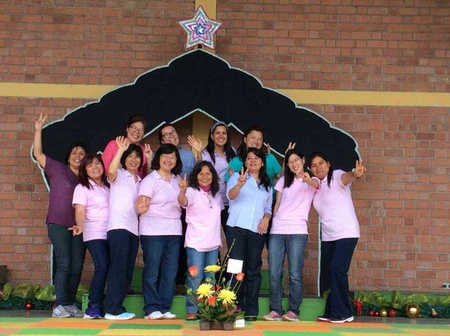
© 2016 Javier Garcia Wong-Kit


